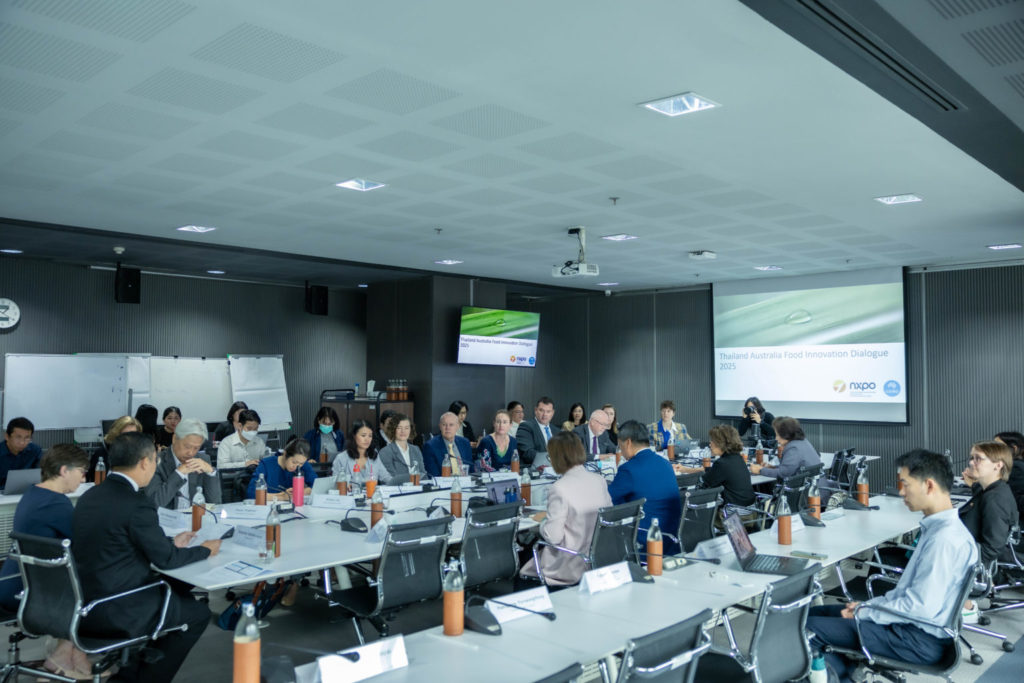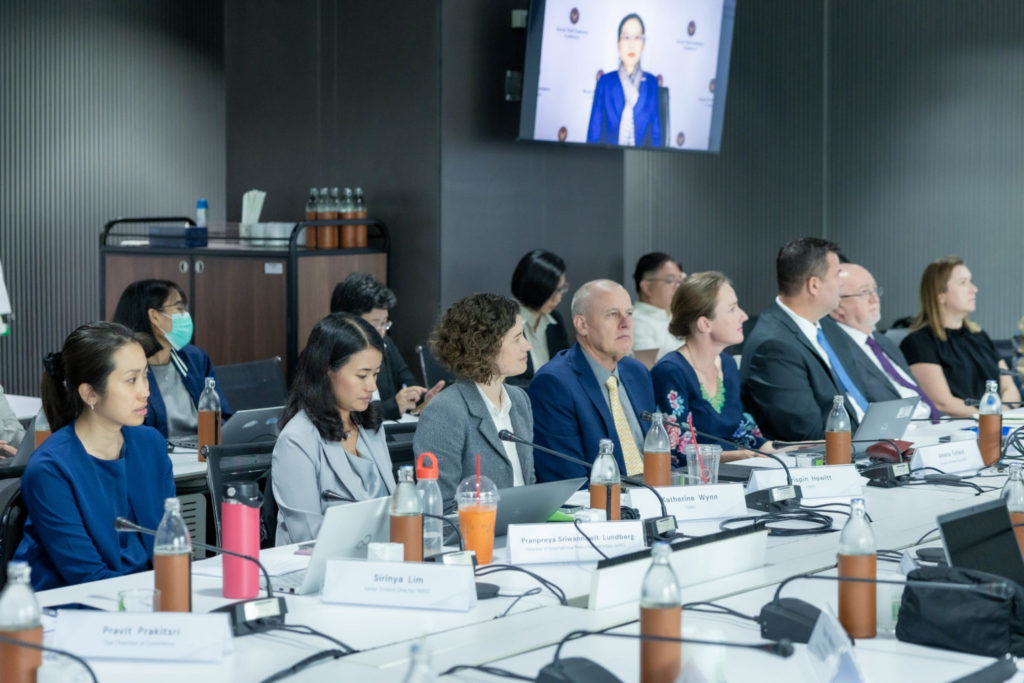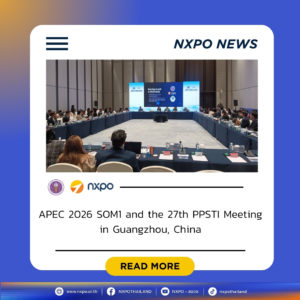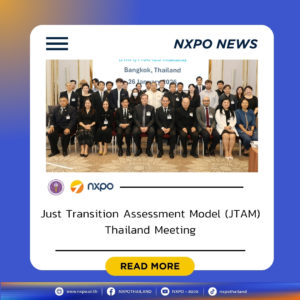On 27 May 2025, NXPO, the Program Management Unit for Competitiveness (PMUC), and the Commonwealth Scientific and Industrial Research Organisation (CSIRO) jointly hosted the Thailand-Australia Food Innovation Dialogue 2025. The event was part of the Thailand-Australia Innovation in Food for Sustainability (IF4S) project, supported by the Australian Government through the Southeast Asia and Australia Government to Government Partnerships Program (SEAG2G). The initiative aims to advance sustainable food innovation and deepen research collaboration between the two countries.
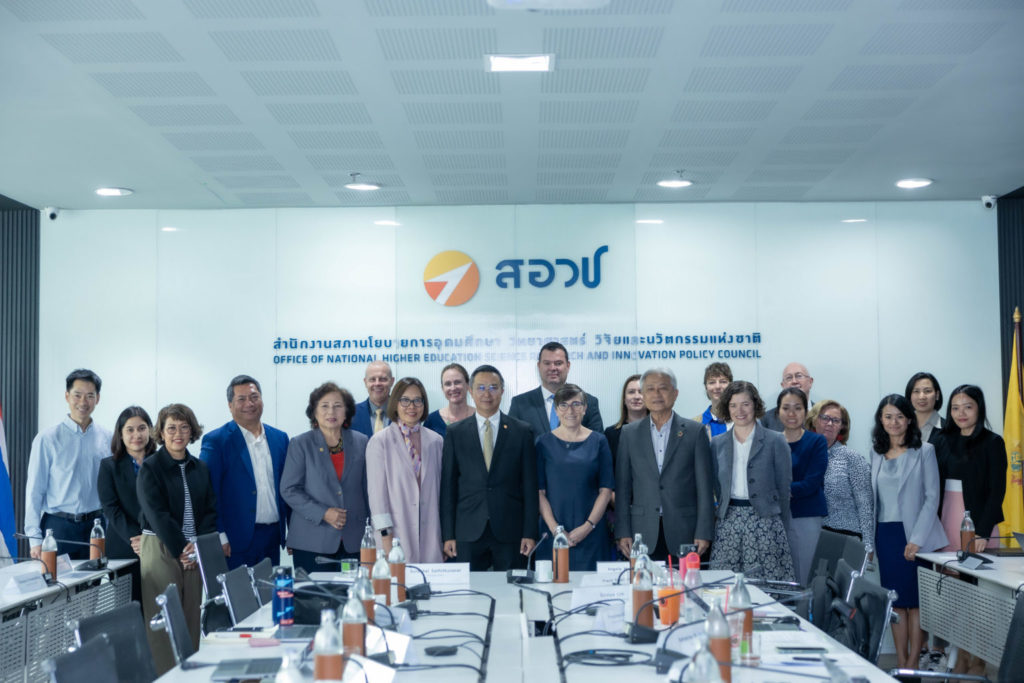
In his opening remarks, NXPO President Dr. Surachai Sathitkunarat, on behalf of Permanent Secretary of MHESI, emphasized that this partnership marks a significant milestone in enhancing the food innovation ecosystem by aligning higher education, research, and innovation policies to strengthen the entire food value chain — from upstream production to downstream markets. He highlighted the Ministry of Higher Education, Science, Research and Innovation (MHESI)’s central role in driving Thailand’s food research and innovation strategy. While NXPO focuses on policy development for sustainable agriculture and future food through funding, regulatory improvements, and fostering multi-agency collaboration, PMUC works to support innovation development by connecting universities, startups, and SMEs to build a globally competitive food industry.
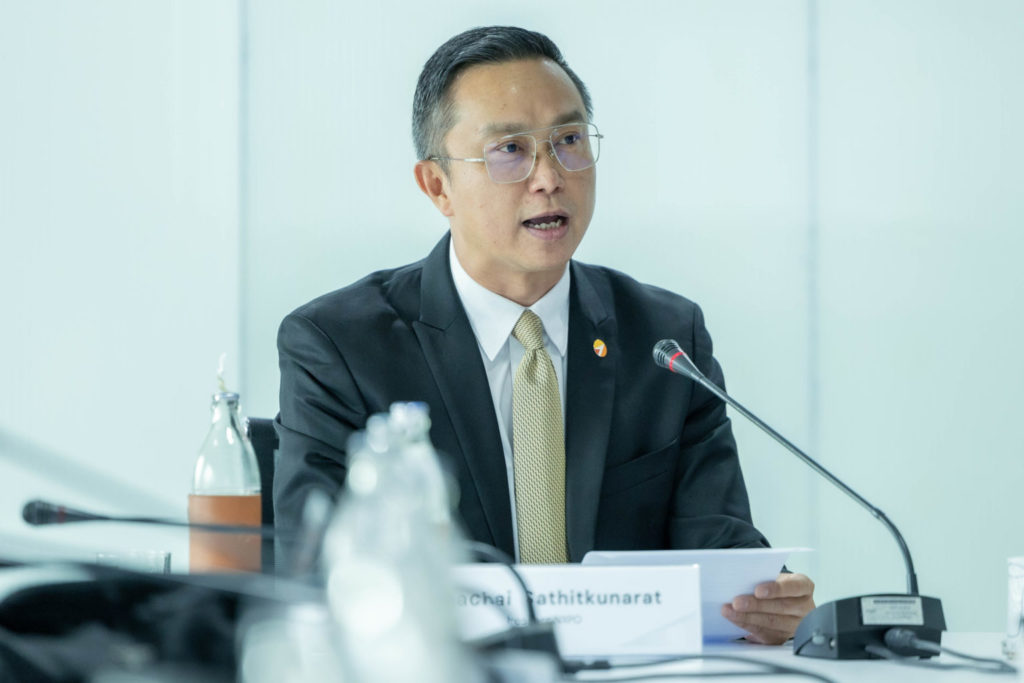
The long-standing collaboration between Thailand and Australia in science, innovation, and policy — through researcher exchanges and joint initiatives — reflects the power of science diplomacy in linking researchers, policymakers, and industries. This cooperation has fostered co-developed strategies to address global challenges while laying the groundwork for regional partnerships, particularly in food security and sustainability.
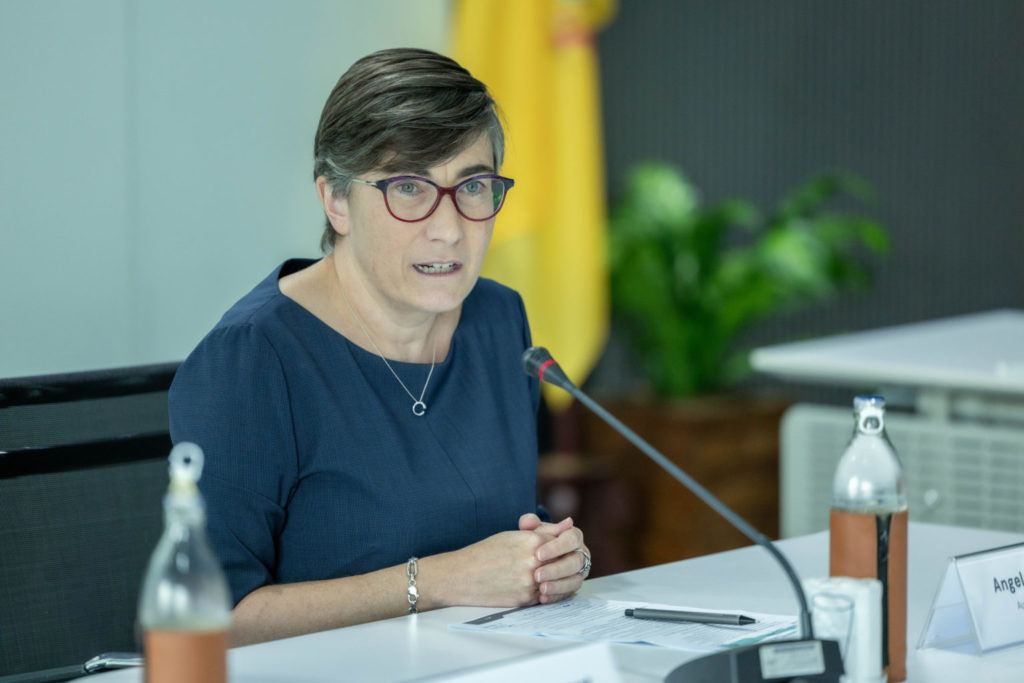
Australian Ambassador to Thailand, Dr. Angela Macdonald, remarked that the Dialogue represents an important step toward future collaborations, particularly in knowledge sharing, joint research, and national policy development. She noted the long history of multifaceted cooperation between the two countries — spanning technology, innovation, and productivity enhancement — closely aligned with the global future food agenda. She also identified promising areas for future collaboration, including environment, energy, healthcare, and medical technology, expressing confidence that this Dialogue would further solidify the close ties between Thailand and Australia.
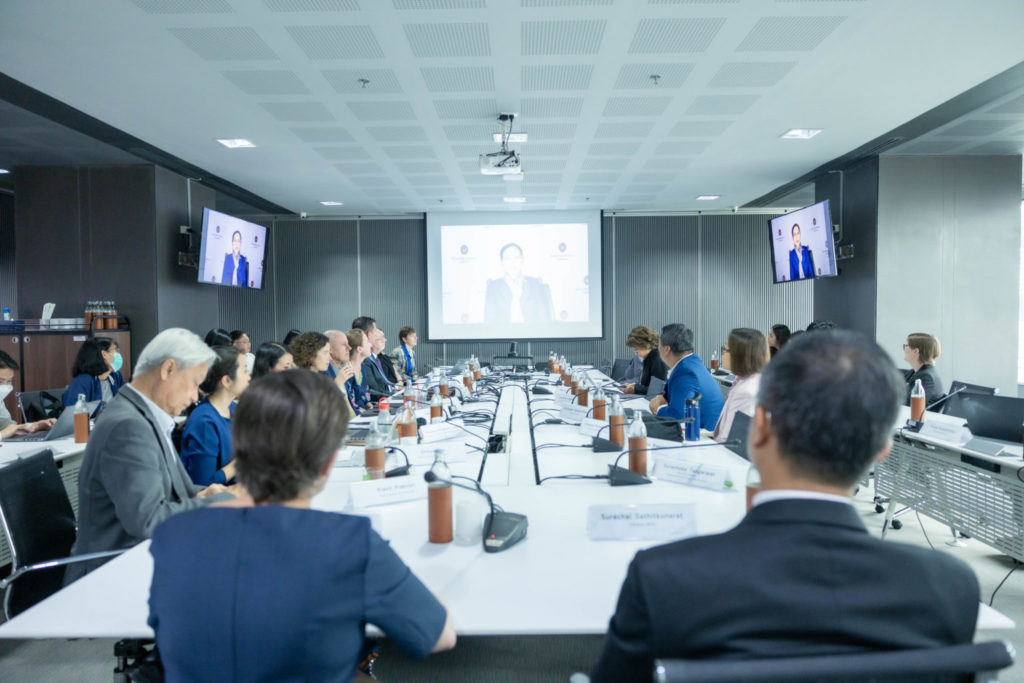
Ms. Arjaree Sriratanaban, Ambassador of Thailand to Australia, also shared a pre-recorded video message, underscoring the importance of developing a strong food innovation ecosystem as a key driver of Thailand’s economic growth. She reaffirmed the proactive role of the Thai government in promoting food innovation, especially by empowering the private sector to develop new technologies and products. She further highlighted Australia’s potential as a strategic partner in science, technology, and human resource development, which would enhance bilateral cooperation in food and agriculture — opening opportunities for technology transfer, investment, and workforce upskilling.

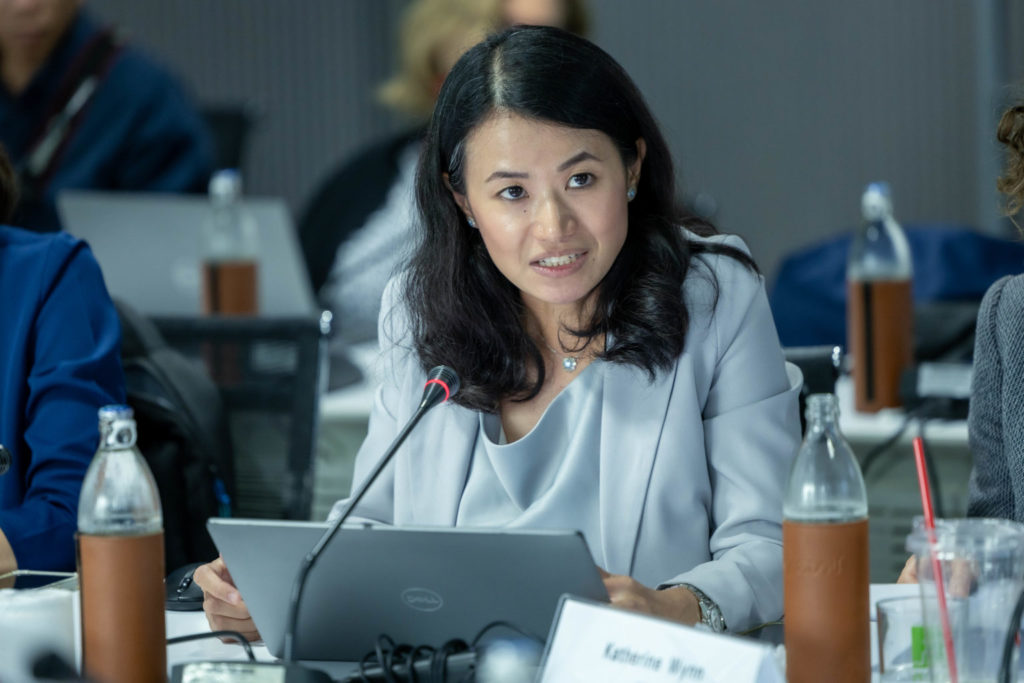
The event also featured knowledge exchanges from researchers and experts from both countries. Dr. Crispin Howitt, Future Protein Lead at CSIRO, presented data indicating that by 2050, the global population will reach 9.8 billion, agricultural land will decrease by 55%, and global protein demand will surge by 71%. He emphasized the critical need to develop alternative proteins — such as plant-based and novel proteins — alongside existing food systems, harnessing advanced technologies like AI and data analytics to improve efficiency throughout the value chain. Dr. Howitt stressed that future food solutions must address consumer expectations in taste, affordability, nutrition, and protein diversity.
Assoc. Prof. Dr. Akkharawit Kanjana-Opas, Senior Advisor at PMUC, noted Thailand’s strengths in agriculture and food processing, ranking it among the world’s leading food exporters. He acknowledged ongoing government support through NSTDA and PMUC, but also pointed out persistent challenges, including labor shortages, regulatory hurdles, limited access to capital, and gaps in innovation and skilled talent. Addressing these issues, he called for cross-sector collaboration, increased investment in research, skills development, and targeted policy reforms to create an enabling environment for sustainable growth in the future food industry.
Ms. Amelia Fyfield, Director of Southeast Asia Innovation Programs at CSIRO, and Assoc. Prof. Chaleeda Borompichaichartkul, Deputy Director for Research Strategy at PMUC, jointly introduced the framework for the Innovation in Food for Sustainability (IF4S) program. The initiative aims to support R&D addressing global food system challenges and drive growth in agriculture, food innovation, and alternative proteins. It operates through three core mechanisms: an annual forum for knowledge and policy exchange, joint research funding for priority topics, and a Venture Exchange program to connect researchers and entrepreneurs from both countries, fostering commercial partnerships and joint research projects. This approach aligns with PMUC’s mission to support research funding for the food industry by linking academic institutions, the private sector, startups, and SMEs, facilitating technology commercialization, and providing comprehensive support mechanisms from R&D to market expansion and workforce development.
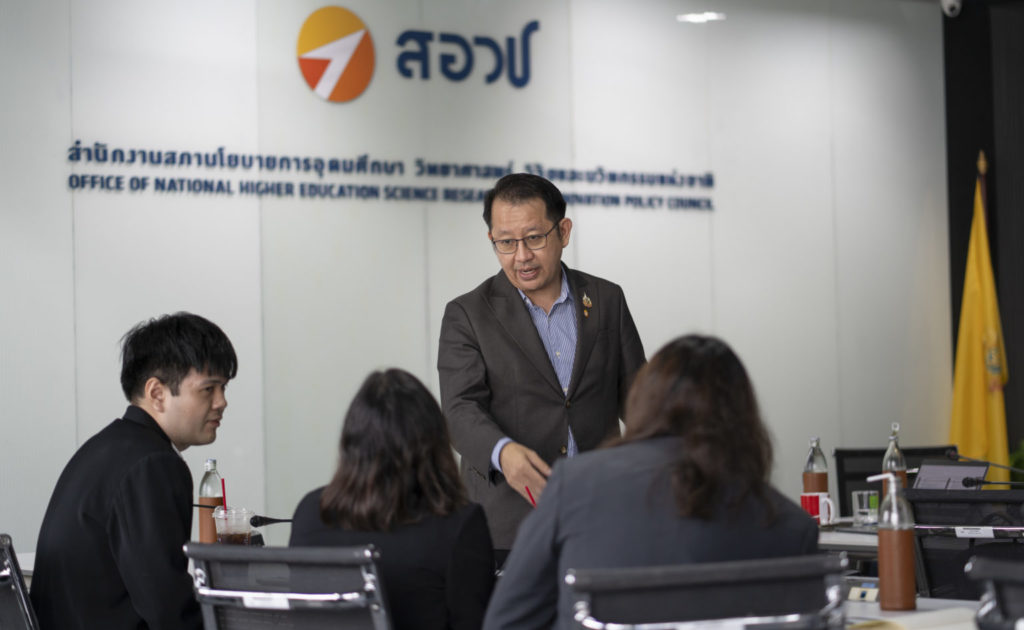
A panel discussion followed, featuring insights from a cross-section of experts, including Dr. Robert Barlow, Research Director of the Food Program at CSIRO; Ms. Sirinya Lim, Senior Director of Innovation Economic Policy at NXPO; Mr. Pravit Prakitsri, Advisor to the Thai Chamber of Commerce; Prof. Dr. Pavinee Chinachoti, Head of the Food Innovation & Regulation Network (FIRN); and Prof. Andy Hall, Senior Principal Research Scientist at CSIRO. The panel explored trends in future food technology, such as the integration of bioengineering and synthetic biology with AI for producing specialized food ingredients and advancing the circular economy by transforming agricultural by-products — for example, turning bagasse into high-value products, with successful models already emerging in Thailand’s private sector.
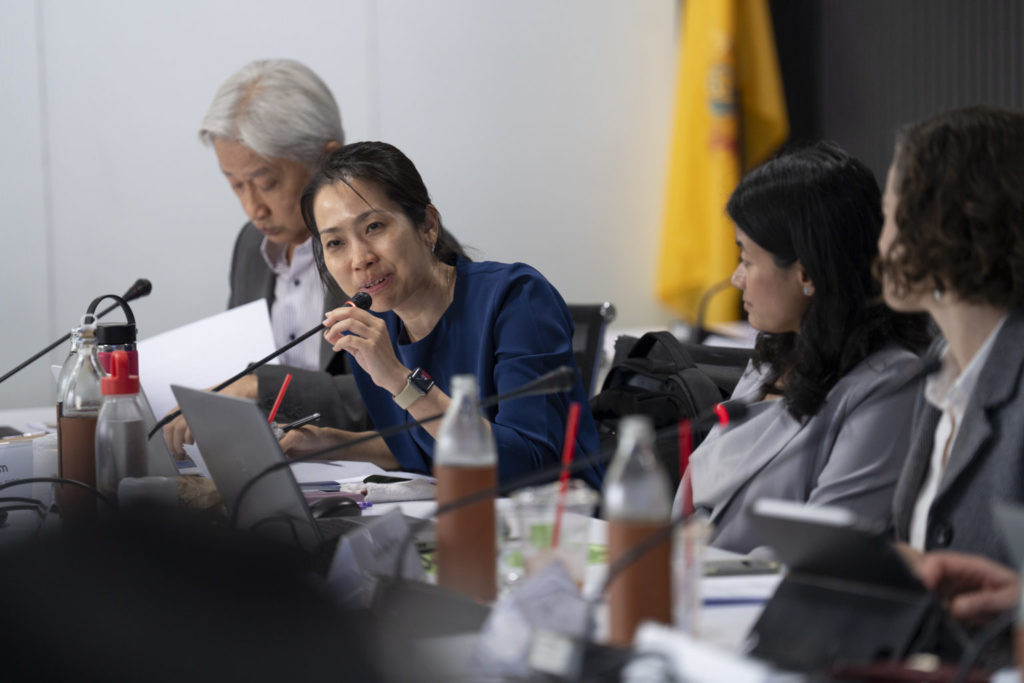
The Dialogue also spotlighted opportunities to strengthen Thai-Australian collaboration by adopting elements of Australia’s food industry development model, including the establishment of standardized food safety supply chains, financial tools to incentivize partnerships between large businesses and local producers, workforce skill development tailored to private sector needs, market insight generation, and policy risk assessments to preempt trade barriers. The panel proposed a comprehensive support framework encompassing research grants, Board of Investment (BOI) incentives, and cross-border cooperation in technical and vocational education and training (TVET), all aimed at elevating Thailand’s food innovation capabilities for sustainable, competitive global growth.
